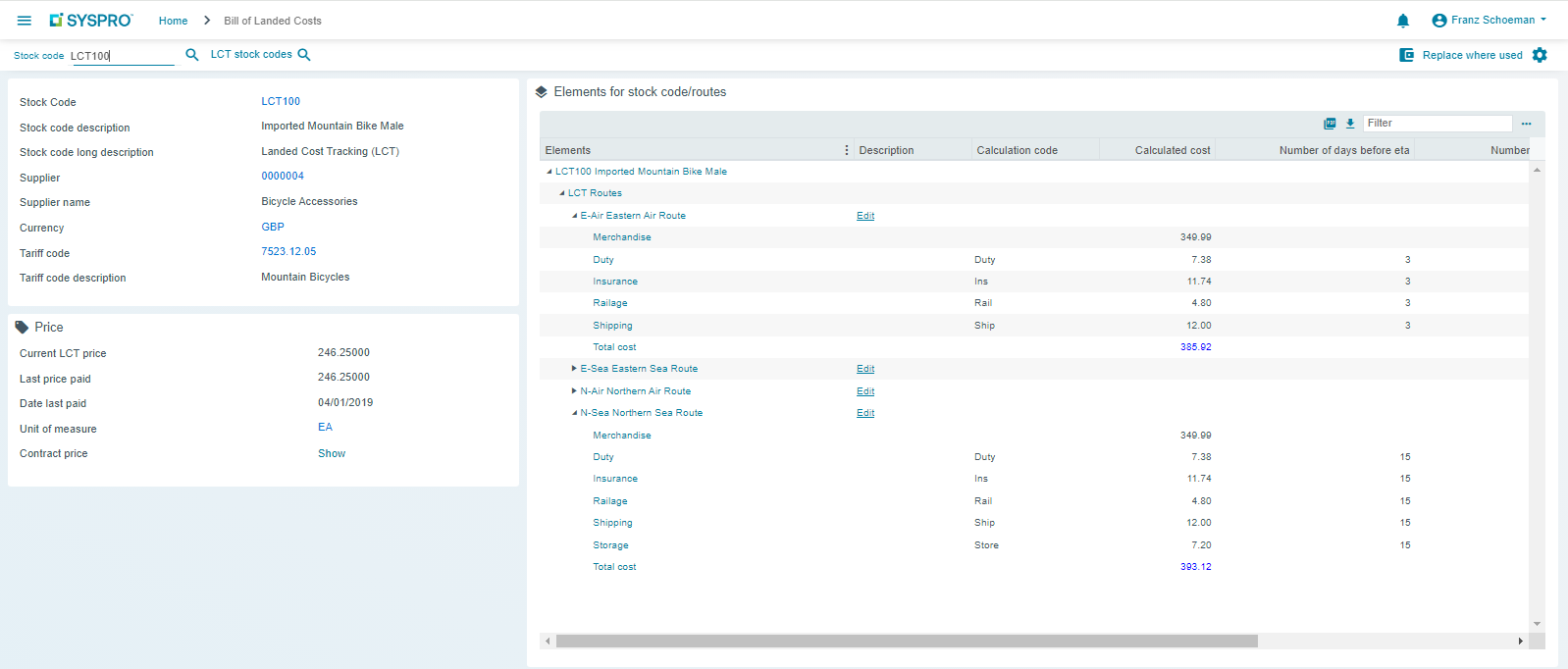What is Landed Cost Tracking?
Landed Cost Tracking (LCT) is a crucial task for any organization that handles products, especially those acquiring material from overseas sources. The process of determining the actual cost of an item is increasingly difficult as more organizations import goods. To calculate the true landed cost, all factors beyond the primary cost of the material must be considered and accounted for to ensure proper costs are available for decision-making.
SYSPRO’s Landed Cost Tracking (LCT) provides visibility of imported goods through shipment tracking and enables greater control of all associated costs, ultimately resulting in accurate landed costs.

